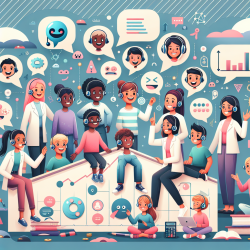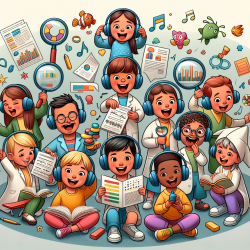Understanding Conversational Agents
Conversational agents are systems designed to interact with users through natural language. They can understand and generate human-like responses, making them valuable in settings that require ongoing communication, such as therapy sessions. The main technologies enabling CAs include:- Natural Language Processing (NLP)
- Machine Learning (ML)
- Emotional Recognition
Applications in Speech-Language Pathology
The integration of CAs in speech-language pathology can enhance therapy sessions by providing consistent, data-driven interactions. Here are some practical applications:1. Personalized Therapy
CAs can be tailored to individual needs, offering personalized therapy sessions that adapt to the child's progress. By analyzing data from previous sessions, CAs can modify their responses and activities to better suit each child's unique requirements.2. Consistent Practice
Children benefit from consistent practice, which can be challenging to achieve with limited therapist availability. CAs can provide additional practice opportunities outside of scheduled therapy sessions, ensuring that children receive the reinforcement they need.3. Engaging Interactions
The use of CAs can make therapy sessions more engaging for children. By incorporating gamified elements and interactive dialogues, CAs can maintain a child's interest and motivation, leading to better outcomes.Challenges and Future Research
While the potential of CAs is significant, there are challenges to consider. These include ensuring the accuracy of speech recognition, addressing privacy concerns, and maintaining the emotional connection between the therapist and the child. Future research should focus on:- Improving speech recognition accuracy for diverse populations
- Developing secure data management practices
- Enhancing the emotional intelligence of CAs
Encouraging Further Research
As a practitioner, staying informed about the latest research and developments in conversational agents is crucial. By integrating evidence-based practices into your therapy sessions, you can enhance the outcomes for the children you work with. We encourage you to delve deeper into the original research paper for a comprehensive understanding of the current state and future directions of conversational agents.To read the original research paper, please follow this link: Conversational Agents: Goals, Technologies, Vision and Challenges.










